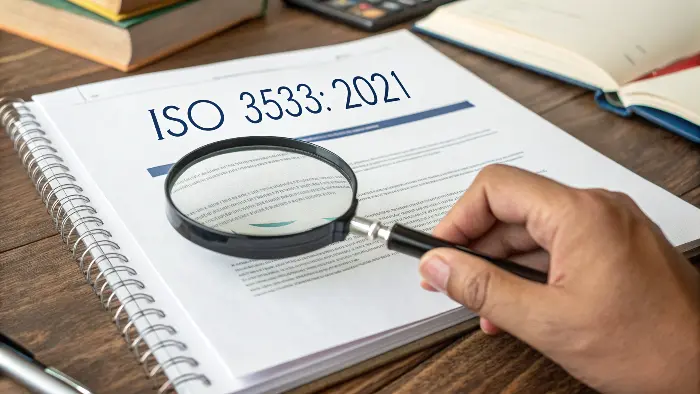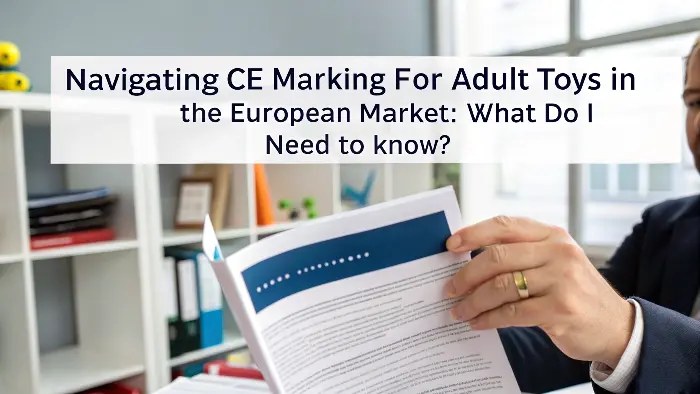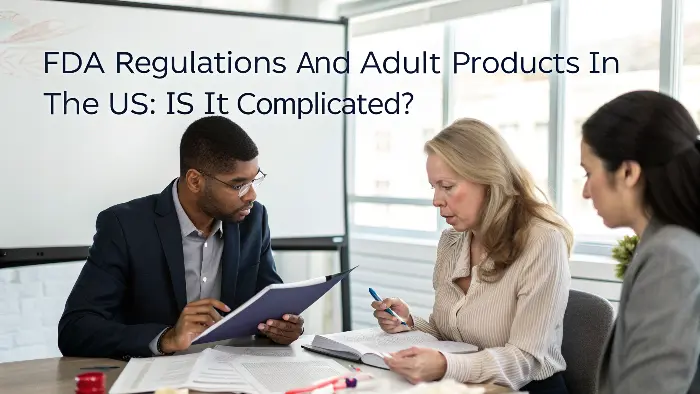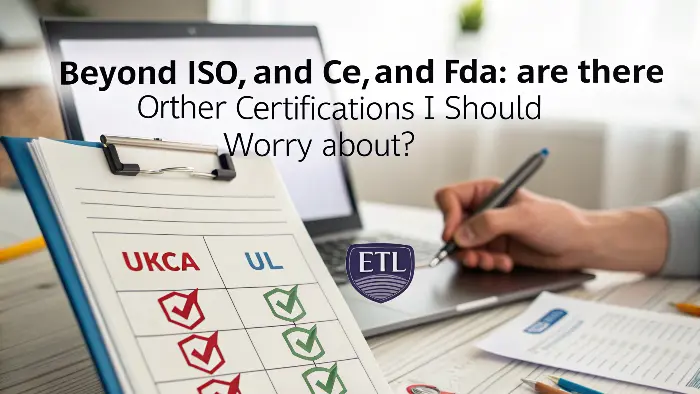Feeling lost in the maze of safety certs? Worried about compliance? It’s a headache, I know, but so crucial for your brand’s success and your customers’ trust.
Navigating international safety certifications like ISO 3533:2021, CE marking, and FDA guidelines is key for adult product manufacturers. These ensure your toys meet global safety, material, and design standards, protecting users and building brand credibility. It’s about more than just rules; it’s about responsibility.
So, you’re probably thinking, "Okay, I get it, safety is important, but where do I even start with all these acronyms and rules?" It can feel like a massive hurdle, especially when you’re juggling product design, marketing, and everything else. I’ve been there. But trust me, getting a handle on these certifications isn’t just a box-ticking exercise; it’s a foundational piece of building a reputable and successful adult product brand. It’s what we, at PrivyPlay, stress all the time. Let’s break it down together, nice and simple.
Why Are International Safety Certifications So Darn Important for Adult Toys Anyway?
Ever had that cold sweat moment, worrying about a product recall or, even worse, a customer getting hurt? These certifications aren’t just annoying red tape; they’re your brand’s shield. They protect your business, build incredible trust, and open up new markets you might be missing.
International safety certifications are vital because they demonstrate your products are safe, high-quality, and legally compliant. This builds customer trust, reduces liability risks, and allows access to global markets like the EU and US, which have strict requirements. Think of them as your passport to international success and peace of mind.
Let’s be real for a second. When we’re talking about adult products – items that people use in very intimate ways – safety isn’t just a "nice-to-have," it’s absolutely everything. I remember early in my own journey, before PrivyPlay really took off, seeing some brands try to cut corners. The fallout was always messy. Reputations just tanked, customers felt betrayed, and sometimes, there were some pretty nasty legal headaches. So, when I started PrivyPlay, making sure our products were top-notch in safety was priority number one, non-negotiable. These certifications, things like ISO 3533, CE marking, or understanding FDA guidelines, they’re not just fancy badges to stick on a box. They are a super clear signal to your customers that you genuinely care about their well-being. It tells them, "Hey, we’ve done our homework, our materials are safe, our designs are sound." This builds massive trust, the kind that keeps customers coming back. Plus, let’s not forget about actually selling your stuff. Want to sell in Europe? You’ll need that CE marking. Eyeing the US market? Understanding FDA guidelines is crucial. Without these, you’re basically locking yourself out of huge customer bases. It’s an investment, for sure, both in time and money, but the peace of mind and the doors it opens? Totally worth it, every single penny.
What’s the Deal with ISO 3533:2021 for Adult Products?
Heard of ISO 3533:2021 but a bit fuzzy on what it actually covers for adult toys? This standard is a pretty big deal for safety and design, especially because it directly addresses products that come into close contact with the body.
ISO 3533:2021 is a specific international standard focusing on the design and safety of adult products intended for direct genital or anal contact. It outlines requirements for materials, user information, and even electrical safety if applicable, aiming to minimize risks for everyone involved.

Alright, let’s zoom in on ISO 3533:2021 because, honestly, it’s a cornerstone for our industry. I first really dove deep into this standard when we at PrivyPlay were developing a new innovative line, and it was a real eye-opener. This isn’t some vague, fluffy guideline; it’s pretty specific about what’s expected for products that, well, get up close and personal. Think about it – materials are a huge part. The standard pushes for stuff that’s body-safe, meaning no nasty chemicals like certain phthalates or heavy metals leaching out. We spend a lot of time and resources sourcing and testing materials just to meet these requirements because it matters. Then there’s the design itself. ISO 3533:2021 talks about things like avoiding sharp edges (sounds obvious, right? But crucial!) and making sure products are easy to clean to prevent any chance of infections. And user information? Super important. You need clear instructions on how to use and care for the product, plus any necessary warnings – these are all covered. If your product has electrical components, like many modern vibrators do, the standard also touches on electrical safety aspects. It’s comprehensive, and following it shows a real, tangible commitment to user well-being. It’s a language your customers understand: safety first.
Navigating CE Marking for Adult Toys in the European Market: What Do I Need to Know?
Dreaming of selling your awesome adult products in Europe? That little "CE" mark you see everywhere isn’t just a sticker; it’s your golden key. But understanding the directives behind it can sometimes feel like learning a whole new language.
CE marking indicates an adult product complies with EU safety, health, and environmental protection directives. For most adult toys, this involves self-certification against relevant standards like the Low Voltage Directive (if electronic) and RoHS (for hazardous substances).
 Ah, the European market! It’s a big one, and a very attractive one for many of us. If you’re looking to sell your adult products there, you absolutely, positively need to get familiar with CE marking. I remember when we first started exporting from PrivyPlay to Europe; the CE process seemed a bit daunting at first glance. But basically, that little CE logo tells European authorities and, more importantly, consumers that your product meets all the necessary EU health, safety, and environmental requirements. It’s not just one single rule, though, that’s the tricky part. Depending on your product, different EU directives might apply. For example: |
Directive | What it Covers | Relevant for Adult Toys? |
|---|---|---|---|
| Low Voltage (LVD) | Safety of electrical equipment within certain voltages | Yes, for many vibrators & e-stim | |
| EMC Directive | Electromagnetic compatibility | Yes, for any electronic toys | |
| RoHS Directive | Restriction of Hazardous Substances in electronics | Yes, for materials & components | |
| REACH Regulation | Registration, Evaluation, Authorisation of Chemicals | Yes, for all materials used | |
| General Product Safety Dir. | General safety for all consumer products | Yes, definitely a catch-all |
You’ll need to compile what’s called a "technical file" with all your product info, test reports, and risk assessments, then issue a Declaration of Conformity. For many adult toys, it’s a self-certification process, which sounds easier but still needs due diligence. Sometimes, for more complex items, a Notified Body (an independent testing lab) might need to get involved. It’s a bit of work, sure, but without that CE mark, you’re just not getting your products onto the shelves in the EU. No way around it!
FDA Regulations and Adult Products in the US: Is It Complicated?
Selling in the USA, or planning to? The FDA’s role with adult products can seem a bit murky, I’ll admit. While not all toys are "medical devices," some are, and material safety is always, always a concern. Let’s try to clear some of that fog.
The FDA classifies some adult products, particularly those making medical claims (like "massagers" for therapeutic use), as medical devices, requiring registration and compliance. For others, general safety and material regulations (e.g., regarding phthalates) apply. It’s less about a single "FDA approval" for all toys and more about specific classifications and material safety.

The US market is another giant, no doubt about it, but the FDA’s involvement with adult products can be a bit confusing for folks. It’s not like every single vibrator needs "FDA approval" in the same way a new prescription drug does. I’ve had so many brand owners ask me about this over the years. Here’s the lowdown as I understand it from my experience: the FDA primarily gets involved if an adult product is marketed with specific medical claims or could be considered a "medical device." For example, if you market a vibrator as a "personal massager for therapeutic relief of muscle tension," then Ding! The FDA might classify it as a Class I or Class II medical device. This means you’d likely need to register your business establishment with the FDA and follow specific Good Manufacturing Practices (GMPs). However, many adult toys are sold simply for pleasure and aren’t making those explicit medical claims. For these, general consumer product safety regulations would apply, particularly around material safety. You should think about regulations like the Consumer Product Safety Improvement Act (CPSIA). While it’s aimed at children’s products, it has important provisions about phthalates that are often looked at as a benchmark for adult toys too because, well, body safety is body safety, right? So, it’s less about a blanket "FDA approval" and more about understanding how your product is classified and ensuring your materials are super safe. My advice? Always err on the side of caution and use body-safe materials, period. It just makes good business sense.
Beyond ISO, CE, and FDA: Are There Other Certifications I Should Worry About?
Think ISO, CE, and the FDA maze are the only letters in the alphabet soup of certifications? Hold on! Depending on your specific product and the markets you’re targeting, there might be a few others. Don’t get caught off guard later on.
Beyond major certifications, consider country-specific marks (like UKCA for Great Britain), electrical safety certifications (e.g., UL, ETL for North America), and material-specific tests (like biocompatibility testing ISO 10993) to further ensure safety and market access.

Okay, so we’ve covered the big players: ISO 3533, CE marking, and the general FDA landscape. But are those the only certifications you might ever need? Not always! It really, really depends on where you’re selling and the nitty-gritty specifics of your product. For instance, since Brexit happened, if you’re selling in Great Britain (that’s England, Scotland, Wales), you now need to look into the UKCA mark, which is basically their new equivalent of the CE mark. Planning to sell Down Under in Australia? You might need to get familiar with the RCM mark. It’s a bit of a patchwork quilt of regulations out there, I know, and it can feel like a lot to keep track of. Then there are specific electrical safety certifications. If your product is electronic and you’re aiming for sales in North America, marks like UL (from Underwriters Laboratories) or ETL (from Intertek) can provide a big extra layer of assurance. While they might not always be strictly mandatory for all adult toys, they sure do build consumer confidence. For China, there’s the CCC (China Compulsory Certification) for certain categories of electronic products. And let’s not forget material-specific tests. While ISO 3533 covers materials generally, you might want to conduct specific biocompatibility tests according to ISO 10993, especially for items designed for prolonged or very intimate contact. At PrivyPlay, we often do these extra tests because it gives us – and our clients – that extra layer of confidence. It’s about going the extra mile, showing you’re dead serious about quality and safety. It’s an investment, sure, but it pays off in trust and reputation.
How Can I, as a Brand Owner, Actually Get These Certifications for My Products?
Feeling a bit overwhelmed by this whole certification process? Yeah, it can seem complex, but it’s totally manageable with the right approach and maybe a bit of help. Don’t let paperwork stand between you and a safe, successful product line.
Obtaining certifications involves understanding requirements for your specific product and target markets, thorough product testing (often with accredited labs), compiling a technical file with all documentation, and, for some marks like CE, issuing a Declaration of Conformity. Partnering with an experienced manufacturer can simplify this significantly.

So, the million-dollar question: how do you actually get these certifications? It’s not like you just fill out a quick online form and, poof, you’re certified. It’s a proper process, but it’s definitely doable. First, you gotta identify which standards and regulations apply to your specific product and where you plan to sell it. This is step one and super key. Then – and this is where we at PrivyPlay really try to guide our clients – you need to design your product and choose your materials with compliance in mind from the very start. Seriously, trying to fix a non-compliant product later on is a total nightmare and way more expensive. Trust me on this one, I’ve seen it happen.
Next up is testing. Some basic quality checks you might do in-house, but for official certification, you’ll almost certainly need to use third-party accredited labs. They’re the experts who will check things like material safety, electrical safety, and all that jazz.
Then there’s the paperwork – the dreaded technical file. This is where you compile all your design specifications, risk assessments, test reports, and user manuals. It’s your evidence, your proof, that the product meets all the requirements. For something like CE marking, you’ll then issue what’s called a Declaration of Conformity.
Now, I know this can all sound like a lot, especially if you’re a smaller brand or just starting out. That’s where partnering with an experienced manufacturer like PrivyPlay can be a real game-changer. We’ve been through this process countless times. We know the requirements, we have established relationships with reliable test labs, and we can guide you through creating all the necessary documentation. It honestly makes a huge difference and lets you focus on growing your brand.
Conclusion
In short, navigating safety certifications like ISO 3533, CE, and FDA guidelines is crucial for your adult product business. It protects users, builds that vital trust, and opens global markets. Think of it as a smart investment in your brand’s future.
